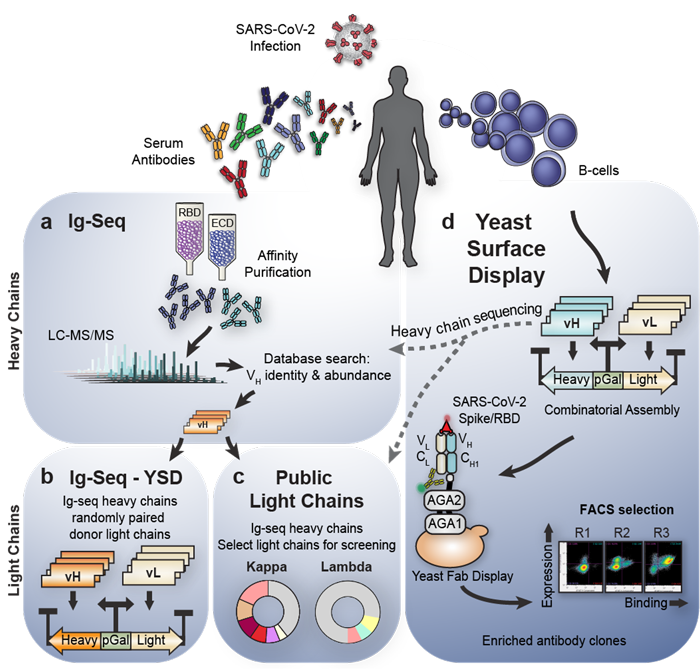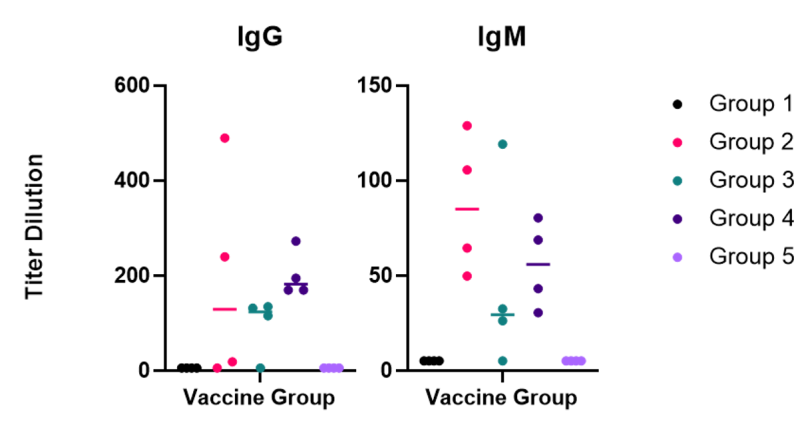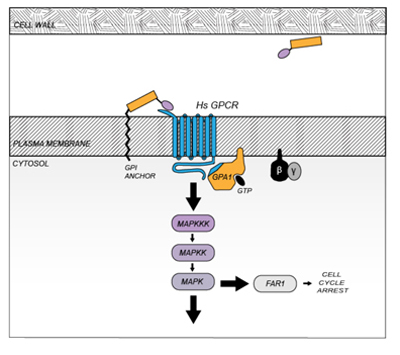Our Mission
The central objective of the Antibody Discovery and Accelerated Protein Therapeutics (ADAPT) research group is to discover and develop therapeutic antibodies for infectious diseases. Our lab uses cutting-edge proteomics, artificial intelligence/machine learning-enabled protein engineering, high-throughput genetic engineering (synthetic biology), and directed evolution to fuel the discovery and development of antibodies and other protein therapeutic platforms.

Antibody Discovery
The identification, characterization, and design of monoclonal antibodies is a major focus of the ADAPT research group. We use patient samples containing human antibody repertoires targeted towards a range of infectious diseases. Incorporating multiple orthologous methods for antibody discovery, we mine these repertoires to discover new therapeutic antibodies. We have developed a platform to rapidly generate candidate antibodies against specific diseases. This platform identified dozens of neutralizing antibodies against SARS-CoV-2. As we apply this platform to more infectious diseases, we endeavor to further increase its throughput and reduce processing time.
Vaccine Design
Vaccine design—the selection and engineering of antigens—is the first crucial step in vaccine development. ADAPT seeks to develop & test candidate vaccine antigens against various infectious diseases, including those most likely to lead to the next pandemic. We identify target antigens using protein sequencing and structure analysis, design stable and effective antigen constructs using computational pipelines, & test various designs using a novel mammalian surface display screening method. Our high-throughput platform will accelerate vaccine development by generating a library of engineered antigen constructs that have been evaluated for stability & antigenic function.


Creation of new genetically tractable therapeutic modalities
Many of the technologies used for antibodies can also be used to genetically engineer therapeutics. We explore novel targets for engineered antibodies beyond infectious disease, and have developed systems for rapid interrogation of human cellular receptors, such as GPCRs and ion channels. This platform may enable development of antibodies or other therapeutics targeting these clinically relevant systems. We are also exploring non-human antibodies, such as nanobodies, and synthetic antibody fragment chimeric proteins. Additionally, we are examining the potential of peptides and modified peptides as an evolvable therapeutic platform.
